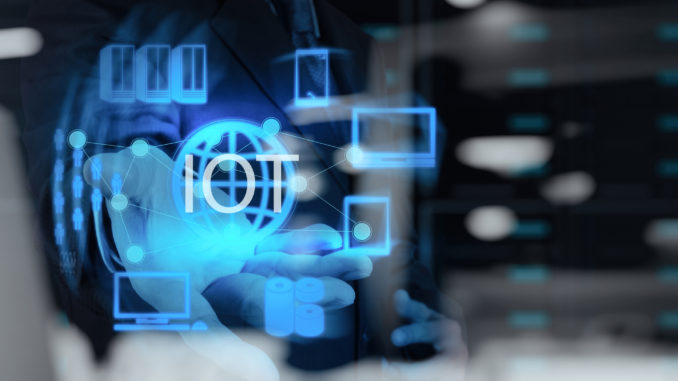
By Kelly Potter, Marketing Associate, Transcendent
Imagine our everyday objects interacting with each other via the internet. That’s the Internet of Things (IoT) in its simplest form. According to Forbes, “The Internet of Things is the network of physical objects embedded with electronics, software, sensors, and network connectivity enabling these objects to collect and exchange data.”
“The number of connected devices will grow by two billion objects in 2006 to a projected 200 billion by 2020, or 26 smart objects for every human on Earth.”
Intel
Companies like GE are calling the industrial Internet of Things the “Third Wave of Innovation” following the Industrial Revolution and Internet Revolution.
The hotel industry has already started implementing IoT strategies into their properties to increase guest satisfaction, decrease unnecessary costs and labor, and increase productivity.
For example, “a smart energy management system knows when a guest room is unoccupied and can automatically adjust the temperature to reduce energy consumption by as much as 20-45 percent,” according to Telkonet.
To best implement IoT solutions in your business, let’s take a look at the top five trends already impacting the hospitality industry ranging from front of the house to back of the house applications.
Five IoT Trends in the Hotel Industry
- Guest-room Automation – Guest-room automation provides a way for hotels to differentiate by keeping up with smart home technology to make the guest feel comfortable and make accommodations especially for their needs. For example, Starwood Hotels & Resorts utilized a technique called “daylight harvesting” to save energy and increase indoor lighting consistency by automatically adjusting the LED lighting based on the natural light detected coming into the room.
- Predictive Maintenance – Predictive maintenance takes preventive maintenance one-step further by using sensor data to recognize hazardous trends and alert the appropriate maintenance engineer before the issue escalates.
Example: If you’re tracking 16 meters manually with a labor cost of $16/hour, checking the meters once per day will cost you $3,840. Now imagine checking the meters once per hour, per minute, and once per second. It becomes impossible to manually check your meters that often without the IoT. - Mobile Engagement – Today, there are almost as many cell phones (6.8 billion)as people on the planet (7.6 billion), with over 85% of the world’s population receiving cellular coverage. Mobile can be seen as a front and back of house application. Guests can use their phone as the key to their room or for submitting requests to the front desk. Mobile engagement is also a back of the house tool through the use of an EAM CMMS application. Engineers can access work requests or work orders that need to be performed on the property to increase guest satisfaction eliminating the need for a paper request that could go left unnoticed.
- Hyper-Personalization – Personal data can be used to provide a personal touch to hotel guests and make their stay special. For example, an IoT platform could over time memorize a guest’s specific comfort preferences and automatically setup the room for their next stay, such as: temperature, lighting, and TV channels.
- API’s & Third Party Integration – As the IoT market matures, vendor consolidation will likely occur, creating a smaller amount of vendors with more cohesive system offerings. Until then, integration will provide work for many, and API’s (Application Programming Interfaces) will be the lifeblood of an integrated IoT system.
Overall, these are just five trends that are being applied to the hospitality industry and making an impact for guests and facility owners and operators.
Now, let’s take a look at some of the drawbacks hospitality may encounter when it comes to IoT.
IoT Drawbacks in Hospitality
Bringing our everyday devices online and connecting them to each other introduces enormous efficiencies, optimizations, and applications. But, it also introduces threats like cyber-attacks and security breaches.
Each device incorporated into a hotel’s digital infrastructure can be exploited by hackers. For example, there was a case in a hotel casino in London where a hacker accessed the high-roller database through a thermometer in the lobby fish tank.
The attackers used the thermostat to get a foothold in the network and they then found the high-roller database and pulled that data back across the network, out the thermostat and up into the cloud.
Now, is this a potential extreme case of what could happen? In fairness, yes, but it shows that it is possible because of all the connected devices that are in the vicinity, i.e. thermostats, refrigeration systems, HVAC systems, and even Alexa devices.
That being said, one incident shouldn’t lead hotels to fear IoT in hospitality or all together. Rather, it should push hotel executives to think about how they can take advantage of the immense benefits of IoT and get ahead of the vulnerabilities. IoT is the way of the future and it’s unavoidable. It’s a way to increase customer satisfaction and be ahead of the competition while still preparing for the worst situation that could happen.
Kelly Potter is marketing associate at Transcendent, an operations management software providing customer, employee, and asset information beyond the traditional office.
Are you an industry thought leader with a point of view on hotel technology that you would like to share with our readers? If so, we invite you to review our editorial guidelines and submit your article for publishing consideration.
